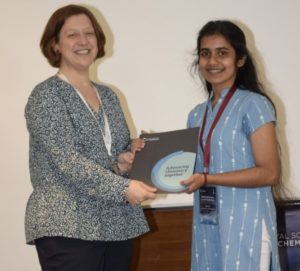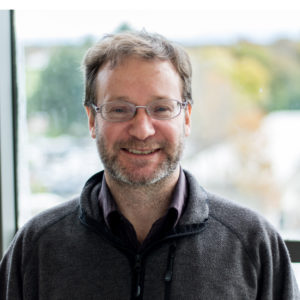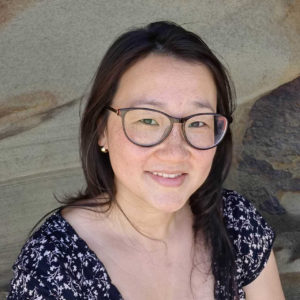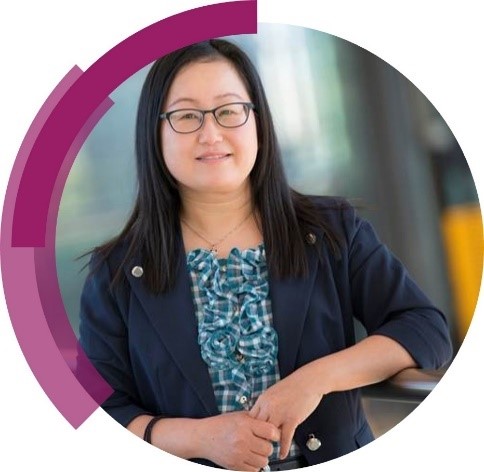
Welcome to your Chemical Science Newsletter
Welcome to the first Chemical Science newsletter of 2023! We ended last year on a high with the first in person Chemical Science symposium since 2019 and this year we’ve seen some major changes to our Scientific Editor team – read on to find out about our new editors. Additionally, Scientific Editor Sophie shares her experience of attending the MASC meeting in December, and we have highlights from the ChemSci2023: Leaders in the Field Symposium. Finally, we are excited to announce that the next Chemical Science symposium will be held on 26-27 October, both in London and online – this year’s theme is the chemistry of polymers, so be sure to save the date!
Catch up with your Chemical Science team
We are excited to introduce three new Scientific Editors that have joined the Chemical Science team in 2023. Join us in welcoming Richard, Jingtao and Esther.
 Richard Thompson
Richard Thompson
Richard Thompson obtained his PhD in polymer and surface science at the University of Leeds, UK, having also previously completed his BSc and MSc degrees in chemistry at Leeds. His research focussed on using plasma treatments and plasma-enhanced chemical vapour deposition processes to provide surface modifications to polymer/textile materials.
Richard joins the Chemical Science team having previously worked as an editor within the RSC on the journals Green Chemistry and Physical Chemistry Chemical Physics.

Jingtao Huang
Jingtao Huang completed his PhD in materials science and engineering at Nanyang Technological University, Singapore, after obtaining his BSc and MSc degrees in chemistry from Xiamen University, China, and University of Washington, Seattle, US, respectively. His research focused on functional nanomaterials in heterogeneous catalysis, energy storage and conversion and sensing.
Jingtao joins the Chemical Science team having previously worked as an editor with Chemistry – A European Journal and ChemElectroChem, and is based in our Shanghai office.

Esther Johnston
Esther Johnston completed a PhD in bioinorganic chemistry at Stanford University in 2015 working with Professor Edward Solomon, and then worked as a Post-doctoral Research Associate at the University of York with Prof. Paul Walton and Prof. Gideon Davies. Her research used spectroscopy to explore the mechanisms of copper-containing metalloenzymes.
Esther joins the Chemical Science team having previously worked as an editor within the RSC on the journals Journal of Materials Chemistry A, Nanoscale, RSC Chemical Biology, and Sensors & Diagnostics.

Highlights from the Macrocyclic and Supramolecular Chemistry Group meeting, Sophie Orchard (Scientific Editor)
“In December I had the pleasure of attending the 2022 Royal Society of Chemistry’s Macrocyclic and Supramolecular Chemistry (MASC) Group’s annual meeting, held in Nottingham, representing Chemical Science. The meeting, held over 2 days, covered the breadth of supramolecular and macrocyclic chemistry with 21 academic talks and an impressive 134 poster presentations. I spoke with many authors, students and readers, gaining feedback on how Chemical Science can best serve the community. The meeting had a very welcoming environment, and it was clear all attendees have a real passion for the field. I look forward to attending the 2023 MASC Meeting which will be held in Birmingham.”
Contact us at chemicalscience-rsc@rsc.org if you are attending a conference and would like to connect with our editors.


ChemSci2023: Leaders in the Field
The ChemSci2023: Leaders in the Field symposium took place at JNCASR, Bangalore, in January and showcased the rapidly growing chemistry community in India. Our Executive Editor, May Copsey, and Associate Editors, Serena DeBeer and Steve Goldup, attended this exciting event which acted as a forum for sharing developments within the Indian chemistry community.

“My greatest impression from the meeting was of the enthusiasm for research and the discussion coming from the younger researchers who were attending the meeting. It really emphasized to me the world-class chemical science research that is being done in India, and I’m excited about what we can expect to see from this next generation of leaders in the future” May Copsey, Executive Editor

“At Chemical Science, we regularly receive excellent manuscripts from groups based in India, but seeing talk after talk from outstanding Indian scientists during the symposium really hammered home the quality of research being carried out in the country. I was also extremely impressed by the calibre of the students and postdocs during the poster sessions, all of whom explained their results enthusiastically and clearly, and were able to discuss both the details of their experiments and the wider context of their work.” Steve Goldup, Associate Editor

“I was really impressed by all the exciting science, the great talks and the lively discussions. The opportunity to get to know many of India’s rising stars in the chemical sciences, and also to meet so many talented students, was a real highlight. And last but certainly not least, the extremely kind hospitality of our hosts made me feel very welcome and is very much appreciated. I very much look forward to returning to India again soon!” Serena DeBeer, Associate Editor
 Many students took part in the ChemSci2023: Leaders in the Field symposium, including Anju A K, who received a “Best Poster” prize for her research. We wish Anju the best with developing and continuing her research in this exciting area!
Many students took part in the ChemSci2023: Leaders in the Field symposium, including Anju A K, who received a “Best Poster” prize for her research. We wish Anju the best with developing and continuing her research in this exciting area!
“The symposium had an excellent line-up of speakers who talked about their amazing scientific contributions to cutting-edge research.
I was also so fortunate to take part in the poster session and discuss my research problem with eminent scientists. The work I explained in my poster was on ‘a through-space donor-acceptor charge-transfer approach to control between different triplet harvesting pathways’. The fruitful discussions also helped me to get some insights to carry out my project forward.” Anju A K, JNCASR, India
Read the full round-up of this event on our blog post.

Editorial Board Focus
Our 2022 Chemical Science symposium was on sustainable synthesis and catalysis. Catch up on all the excitement below in Andrei and Paolo’s joint round-up of the event.
In early November of 2022, the Royal Society of Chemistry convened an international conference dedicated to sustainability in chemical synthesis. The event was headlined by David MacMillan (2021 Chemistry Nobel Laureate) of Princeton University, who shared his lab’s recent advances in photoredox catalysis. Given Dave’s involvement with Chemical Science as the founding Editor-in-Chief, his talk was particularly meaningful and set the tone for the rest of the conference.
No conference is complete without an engaging poster session and this RSC event was no exception: throughout the two-day conference, the participants had a chance to mingle with each other and enjoy posters. Like the selection of talks, the science described in the poster session represented a broad range of research topics and was a testament to the diversity of contributors.
Overall, the Chemical Science symposium on ‘Sustainable synthesis and catalysis’ offered a unique opportunity for networking and discussing the synthetic chemistry of the future.
Read the full comments from Andrei and Paolo on our blog post.
Newest Associate Editors
In 2022, we welcomed both Zaiping Guo and Malika Jeffries-EL to the Chemical Science Editorial Board. Zaiping’s research focuses on the design and application of electrode materials and electrolytes for energy storage and conversion, including rechargeable batteries, hydrogen storage, and fuel cells. Malika’s research involves the design and synthesis of organic semiconductors for use in OLEDs and OPVs.
Find out more about the scientific interests of Malika and Zaiping in their Editor’s Choice collections:


A note from our Executive Editor, May Copsey
I’d like to thank our authors and peer reviewers for all their hard work in supporting the journal throughout 2022, and I’m looking forward to hearing and reading all the inspiring stories and discoveries in 2023. Finally, the 2023 Chemical Science symposium will be held on the 26th and 27th of October in London and online. This year’s theme is on the chemistry of polymers and we hope to see you there!


Comments Off on Chemical Science Newsletter – March 2023






























 Many students took part in the ChemSci2023: Leaders in the Field symposium, including Anju A K, who received a “Best Poster” prize for her research. We wish Anju the best with developing and continuing her research in this exciting area!
Many students took part in the ChemSci2023: Leaders in the Field symposium, including Anju A K, who received a “Best Poster” prize for her research. We wish Anju the best with developing and continuing her research in this exciting area!




